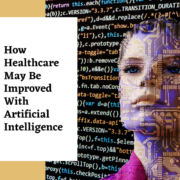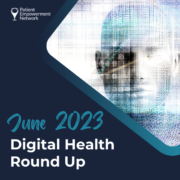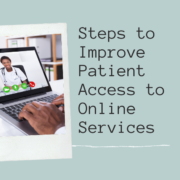How Healthcare May Be Improved With Artificial Intelligence
If you have not been up to date with healthcare news, or do not work in any healthcare related field, you may be unaware of the gradual increase how reliant the sector is on technology. Every facet of society has been on an upward climb with how digitized it is, and healthcare is no exception. From breakthroughs as interesting as robotic surgery to standardizing electronic patient notes, both primary and secondary care have grown accustomed to the benefits of how artificial intelligence can benefit them.
In healthcare, introducing new treatment whether based in technology or pharmaceuticals is highly expensive, though great efforts are being taken to increase efficiency, reduce human errors and improve healthcare overall. In the long running of things, this would save the healthcare economy billions in coming decades.
Genomics
There has been a public declaration made by IBM Watson Health to incorporate artificial intelligence to the ongoing battle against cancer. The focus currently lies with later stage cancer patients who are at their most critical points. This is because it is likely current treatments have failed for them, or aren’t strong enough. New treatments could offer them the best chances when facing their life or death situations.
Specific genetic factors involved in cancer can be identified and targeted with idealized therapies. This offers hope to many Veterans in the US, and cancer patients worldwide.
Drug Discovery
It has been about three whole decades since a new effective antibiotic has been discovered. This has led to a seemingly losing battle with the emergence of more superbugs (antibiotic resistant pathogens) significantly often. The journey to discovering new drugs is very expensive, meaning many drug companies have slowed down the process of discovery. However, Pfizer’s use of IBM Watson (technology that utilizes machine-based learning) is pioneering the path to finding new drugs that are active for cancer and immune therapies.
Other drug companies such as Sanofi are using artificial intelligence to find new therapies for metabolic disease; Genentech are also leading the way in cancer research with artificial intelligence from Cambridge, Massachusetts.
Robotic Surgery
The correct term for this is robot-assisted surgery, because though it looks like a robot is handling the surgery from the operating theatre, there is actually a surgeon (or multiple surgeons) that are controlling the robotic tools remotely. This has been rolled out successfully in multiple countries so far. These include the United Kingdom and Dubai. The major benefits of robot-assisted surgery is increased precision and accuracy. There is less room for human error, and more room for improved patient care.
Secondary Prevention
One of three or sometimes four main branches of prevention, secondary prevention relates mostly to medical imaging. There has been a huge surge of technological advances in this area in the past century. The simple ultrasound has become 3D imaging and the simple radiograph has become detailed computerised tomography. New approaches can now be taken, that reveals more information about patients. This leads to clearer imaging, faster diagnosing and better results.
Personalized Medicine
Genetic screening has been more incorporated into healthcare since the sequencing of the human genome in recent decades. With genetic information and associations readily available, more accessible means of accessing patient DNA have been developed. There are now easy methods of reaching a patient’s genetic code and assessing their risk for certain health issues that carry genetic risks.
“Polygenic scoring weighs the linear combination of multiple small genetic variations and are used in predisposition assessment,” says Mary Crawford, tech blogger at Australia2Write and Write Myx.
Visual Assisting
Nursing is investing in the development of virtual assistants, which can take over the role of healthcare assistants and push the healthcare staff population to higher fields of work. Healthcare providers will then be able to maintain continuous contact with patients.
Better Data Security
A major leap in healthcare is digitizing patient records, and rolling out a singular way of standardizing them across the country. Though this is extremely useful for transferring patients from healthcare provider to healthcare provider, it creates room for a cyber-attacks that will steal sensitive data.
“As artificial intelligence increases with patient data storage, it also increases with cybersecurity. Extra security is essential to patient protection,” says Erick Schmid, data analyst for Brit Student and Next Course Work.
Discussing how healthcare may become revolutionized by artificial intelligence may conjure up images of the 1985 movie Daryl. However, the movements are very much real and non-fictional. Productivity is on the rise and medicine has become more business-minded.
Due to its benefits, artificial intelligence is certainly gaining popularity in the healthcare industry and there are developments every year. There are predictions that the involvement of artificial intelligence will grow by 1000% by 2015, pushing it to become a 13 billion dollar industry.
Michael Dehoyos is a medical Blogger at Phd Kingdom and Academic brits. He assists companies in their marketing strategy concepts, and contributes to numerous sites and publications. Also, he is a writer at Case Study Help, academic service.
Michael Dehoyos is a medical Blogger at Phd Kingdom and Academic brits. He assists companies in their marketing strategy concepts, and contributes to numerous sites and publications. Also, he is a writer at Case Study Help , academic service.










